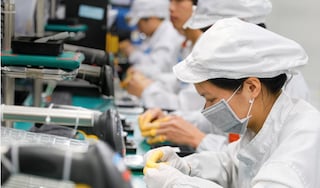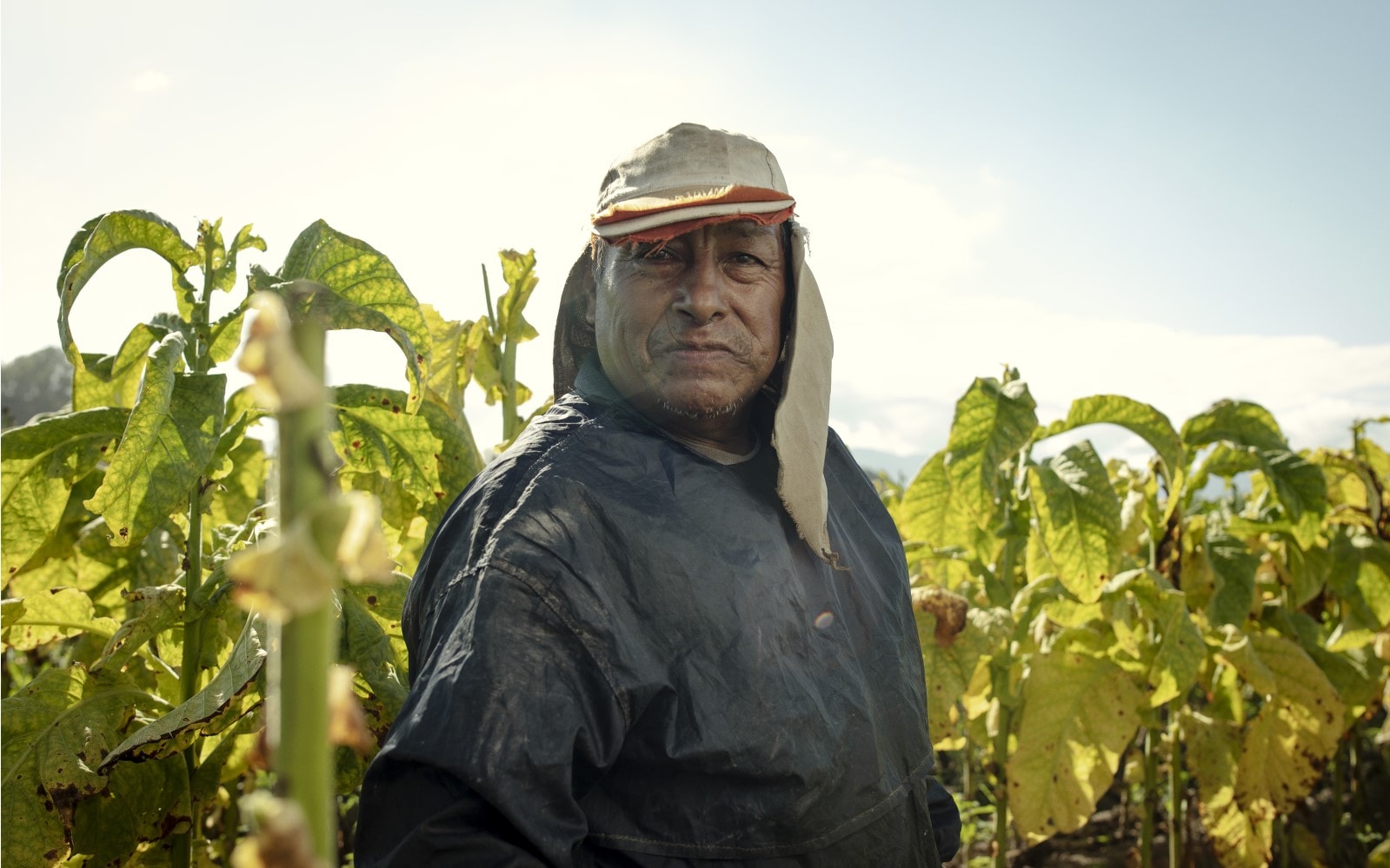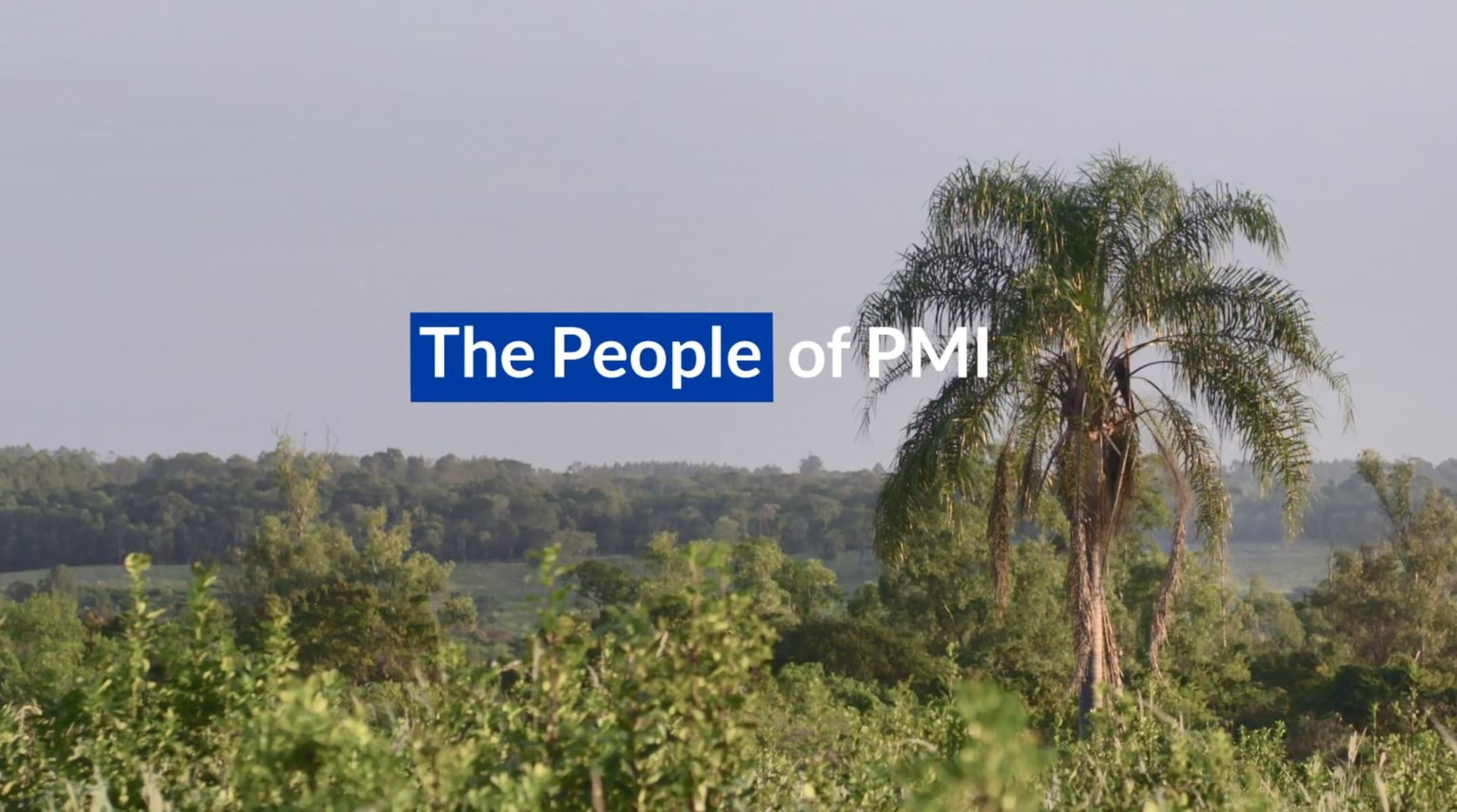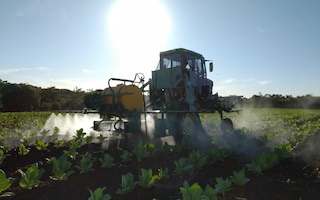On the ground in Misiones, Argentina
Located in Argentina’s northeast corner, where Brazil, Paraguay, and Argentina meet, Misiones Province is best known for Iguazú Falls, a UNESCO World Heritage site and one of the largest waterfalls on Earth. A humid subtropical climate, four major rivers, and abundant precipitation make Misiones the most important growing region for Burley tobacco in Argentina.
Progress toward a living income
Read moreDespite the region’s natural assets, poverty in Misiones Province remains high. We dedicated much of 2020 to instituting a living income benchmark in the region to help alleviate poverty. First, we commissioned the Anker research network to use its newly released Reference Value methodology to calculate a living income for rural Argentina that could be applied to PMI tobacco farmers. This study yielded a living income reference value of ARS 50,0231 with a +/- 10 percent margin of error.
Since reference values are not location-specific within countries, instead representing a rural location deemed “typical,” the margin of error can be used to address variations in local costs of living. In rural Misiones, where living costs are relatively low, the lower limit was applied. We estimate 64 percent of farmers directly contracted by Massalin Particulares already earn a living income. With a reference value in mind, we set about devising practical solutions to increase farmer income and ensure that all Massalin Particulares farmers achieve or exceed the reference value through improving farm productivity and implementing crop diversification.
Key strategies
Mechanization
The average tobacco production area of Massalin Particulares farmers in Misiones spans 2.14 hectares. Currently, tobacco production in the province relies almost exclusively on family labor to perform manual tasks, with the potential risk of child labor. When farmers use field machines to improve efficiency, they can increase their production yield and the land area under cultivation. In addition, most physically demanding field tasks can benefit from improved ergonomics, efficiency, and event substitution to mitigate the risk of violations of our Agricultural Labor Practices Code such as child labor and pay below the legal minimum wage, and to mitigate the risk of exposure to Green Tobacco Sickness and crop protection agents.
Massalin Particulares’ mechanization program offers soil preparation services to farmers. During 2020, 15 service providers were contracted. Massalin Particulares and local supplier, Lory Máquinas, developed and tested the first prototype of the Burley dual harvester/sprayer, to be deployed on fields in 2021. This strategic partnership fosters an attractive and profitable business model in which Lory Máquinas supplies machines to third parties that service tobacco and can be adapted for other crops such as tea and yerba mate. This represents a crucial milestone for PMI as it works to meet its ambitious targets.
Diversification
Diversified sources of income not only help farmers reach the living income threshold, but also make them more resilient to natural or economic disruptions. For instance, yerba mate generates a potential income of approximately USD 1,400 per hectare; maize, USD 250 per hectare; and pork, USD 2,650 per year. Farmers with at least one commercial agricultural activity besides tobacco are considered diversified. A 2020 survey performed by Massalin Particulares field technicians showed that 76 percent of Massalin Particulares farmers grow additional crops for commercialization: 40 percent grow maize, 40 percent grow yerba mate, and 17 percent raise livestock (pork). Importantly, almost 100 percent of farmers grow additional crops for personal consumption.
More work to do
PMI aims for all tobacco farmers that are part of our global supply chain to earn a living income by 2025. To that end, work continues in Misiones. The table below shows the progress we anticipate.
We are employing several strategies to achieve our objective:
- First, by year-end 2024, we aim to further mechanize production on tobacco farms in our supply chain to increase yields per hectare by 15 percent versus 2020 levels.
- Second, we aim to increase the average amount of planted fields for commercialization on each farm from 2.14 hectares in 2020 to 2.5 hectares in 2025.
- Third, as many farms contain underutilized land, we will work with those farmers who currently do not earn a living income to help them expand into commercial maize, yerba mate, and livestock production. In 2021, they will receive seeds and fertilizer sufficient for two hectares of maize, plus technical support. This will subsequently expand to include farmers earning slightly above living income levels in 2022. In the medium term, we plan to do the same with yerba mate and pork to strengthen the earnings of farmers who today earn a living income. We aim to increase the proportion of farmers with diversified crops to 90 percent in 2023.
Industry-wide challenge: No minimum wage
Beyond farmers’ living income, we collaborated with key stakeholders in 2020 to come to a consensus on a minimum wage for tobacco farmworkers. Prior to this, such workers were paid the prevailing informal rate. Most farming tasks are performed by adult family members and/or via cambio de día (a labor exchange practice in which farmers help each other with no economic remuneration). To supplement that labor, tobacco farmers in Misiones typically hire around 6,100 workers each year for specific tasks, mostly during harvesting and occasionally transplanting.
Argentine provinces have the autonomy to define wages independently. Prior to 2020, Misiones Province had not established a minimum wage for smallholder tobacco farmers, as it had for farmers of other crops such as yerba mate. One reason is that tobacco traditionally has not required full-time hired laborers outside the family. Consequently, the national minimum wage for large-scale agricultural producers applied to tobacco farm work, a figure not suited to the costs and living conditions in the countryside of Misiones. Agreeing on a minimum wage for tobacco production in Misiones brings the following benefits:
- Workers earn a wage that allows them to cover basic needs, such as education, nutrition, decent living accommodation, clothing, and health care.
- The provincial government, tobacco chamber, and farmers association make Misiones a more attractive place to do business, as they work to foster decent jobs and social protections for residents.
- Tobacco companies can use the minimum wage as a benchmark to ensure a consistent starting point for all competitors and fair working conditions in their supply chains.
Inside peek at the negotiation of a minimum wage
PMI took a proactive role in initiating the negotiations by organizing meetings between the key stakeholders.
In September 2020, representatives of the tobacco companies, local government entities, the tobacco chamber, and the farmers and workers associations signed a landmark agreement defining the “minimum vital national salary” (also known as minimum wage) as ARS 18,900 for tobacco farmworkers in Misiones. Moreover, new daily and hourly rates enable workers to earn more precise sums. This represents an important improvement, as most workers in Misiones are paid hourly. We estimate that 52 percent of the workers hired by Massalin Particulares’ contracted farmers earned the new minimum wage in the fourth quarter of 2020, and we expect this figure to increase in 2021. Under this agreement, the rate will be adjusted monthly for inflation.
Executing the minimum wage
It is time to fully execute the agreed minimum wage in Misiones. By year-end 2021, we aim for 100 percent of Massalin Particulares tobacco workers to earn the new, inflation-adjusted minimum wage. To that end, in 2020, we raised awareness of the new minimum wage among workers via field technician training and took an industry-wide approach designed to ensure uniform messages are communicated to farmers. We will also distribute guidelines to instruct farmers on how to properly complete payslips. As we monitor compliance with the new minimum wage, non-compliant payments will be reported as “prompt actions.”
Field technicians visit farms throughout the tobacco growing season and evaluate how well labor practices align with the principles of PMI’s Agricultural Labor Practices Code. Field technicians raise “prompt actions” to flag and trigger a response to any serious violation. A remediation plan is then agreed with the farmer, followed up on, and monitored. If the matter is not resolved within the agreed timeline, it is escalated and may lead to sanctions.
Success in the above areas in Misiones will propel us toward our global goal of 100 percent of the tobacco farmworkers in our supply chain earning at least the applicable minimum legal wage by 2022.
For more information on how PMI aims to ensure workers a minimum wage, safe working conditions, and adequate accommodation, as well as our efforts related to water, sanitation, and hygiene, please refer to the “Socioeconomic well-being of tobacco farmers” section of our Integrated Report.
Other case studies
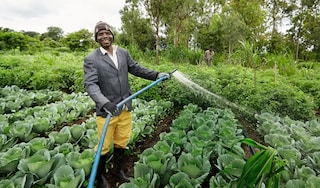
Working towards crop diversification
Read more
Early adopter market Japan
Read more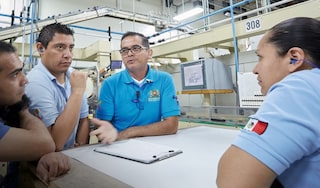
Human rights due diligence in Mexico
